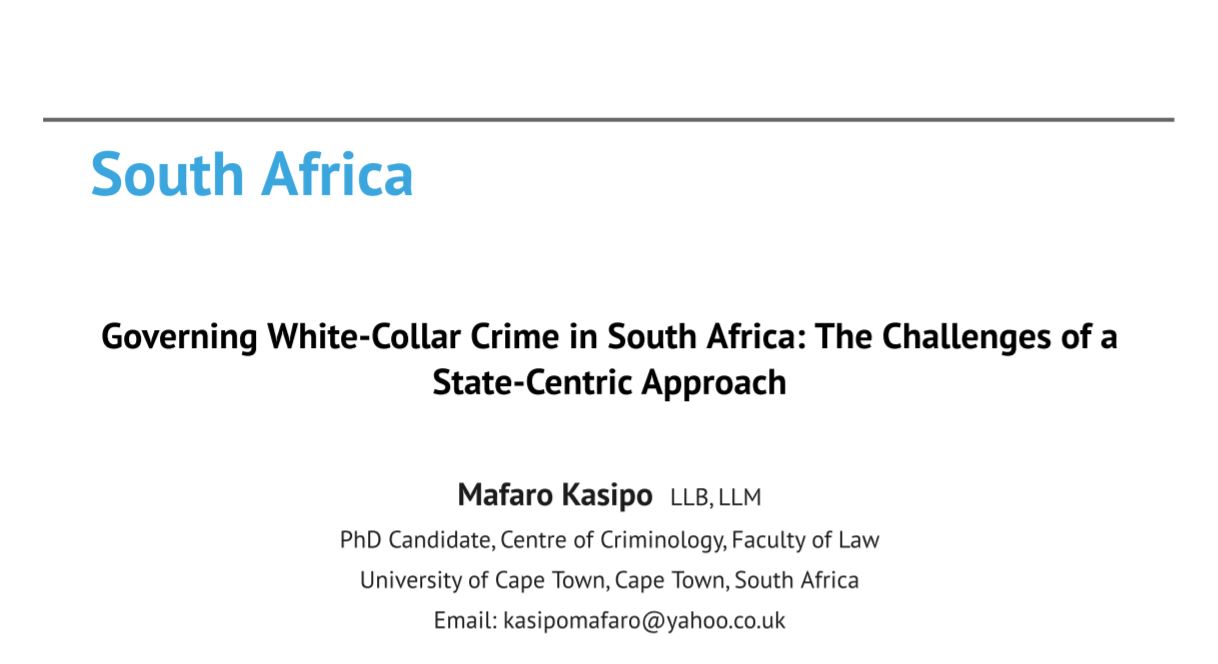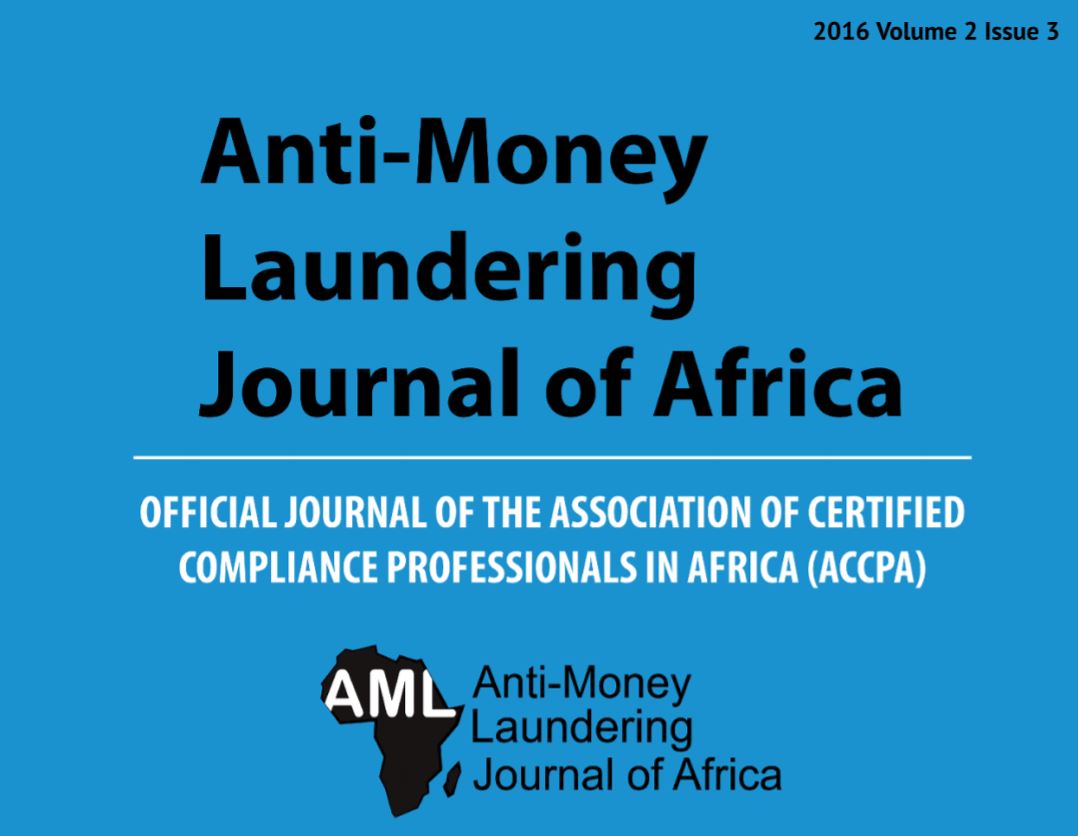GoverningWhite-Collar Crime in South Africa: The Challenges of a State-CentricApproach

White-collar crime has been on the rise in South Africa, albeit, the exact scale of the problem is unknown due
to under-reporting. Although, the government has a well-developed legal framework to address white-collar
crime, law enforcement has been fraught with challenges. Limited resources and lack of skilled investigators
have been serious impediments to the criminal justice system's ability in dealing with this?complex?crime. As
such, it is important to reconsider the theoretical basis of addressing this type of crime. This article argues
that the nodal approach is best placed to address white-collar crime because it does not make the normative
claim that the state should monopolise policing. It urges for an empirical approach and recognises non-state
actors such as regulation and compliance professionals may be important nodes in security provision. The
nodal approach gives valuable insights into the governing of a policing challenge that the law enforcement
and the criminal justice system are not adequately resourced to address. However, the ideological tensions
between state and non-state policing actors raise serious challenges around balancing the issues of
pragmatism when dealing with white-collar crime through regulatory and compliance measures, and the
creation of a system of justice that treats everyone as an equal.
Above the abstract from PhD candidate, Mafaro Kasipo's recent article in The Anti-Money Laundering Journal of Africa. To read the article click on the cover below:

To read the entire edition, including the article by anther PhD candidate, Olwethu Majola, click below:

